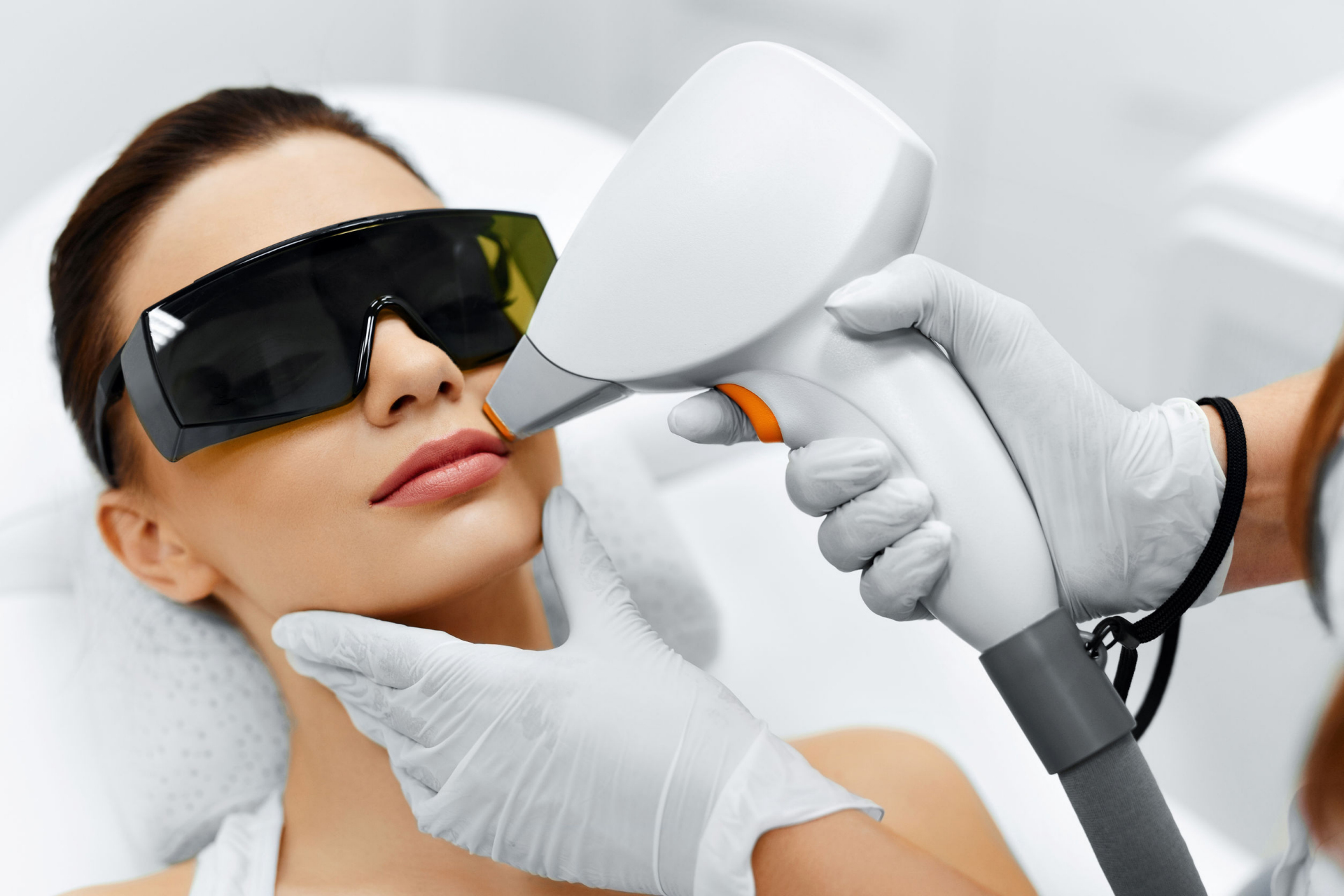Table Of Content

However, Sorg et al. findings on lipid peroxide formation, most likely induced by ROS, are supported by Zastrow et al. (2009) who showed that ROS production is stimulated across the entire spectrum from UV to IR. Other potential side effects include swelling, redness, and scarring. Lasers can selectively target dark, coarse hairs while leaving the surrounding skin undamaged.
Safety
Home laser removal kits are available for people who want to remove unwanted hairs without going to a dermatologist. Experts do not recommend laser hair removal for people who are pregnant. This is because scientists have not carried out any human studies that prove the safety of laser hair removal during pregnancy. Laser hair removal therapy does work, but it rarely achieved permanent hair removal. Laser treatment can significantly reduce hair growth, nevertheless.
What about home lasers?
Typically, patients require between six and eight treatments to achieve optimal results, with treatments spaced six to eight weeks apart. The interval between treatments will vary depending on the location. On areas where hair grows quickly, such as the upper lip, the treatment might be repeated in four to eight weeks.
Is laser hair removal safe for pregnant women?

Consulting with a dermatologist is recommended to assess individual risk factors and determine the best hair removal method based on personal circumstances. To understand whether this concern is valid, it is important to first understand how laser hair removal works. Laser hair removal involves targeting the hair follicles with concentrated beams of light. The light is absorbed by the pigment in the hair, which then heats up and damages the follicle, inhibiting future hair growth. It’s essential to choose a reputable clinic or provider for laser hair removal and to follow pre-treatment and post-treatment care instructions to minimize any potential side effects. It is important to choose a reputable provider with experience in laser hair removal and to take the time to prepare for the procedure by following any pre-treatment instructions provided by the provider.
Generally speaking, light-based treatments may aid quicker diagnosis of melanoma due to informed consultations with trained personnel during medical clinic or salon-based treatments. Brazilian laser hair removal gets rid of all the hair from your bikini zone, like a Brazilian wax would, but in a more permanent way. If you have light skin and dark hair, you will likely see good results from laser hair removal that can last much longer than other hair removal methods. Laser hair removal is one of the most commonly done cosmetic procedures in the U.S. You may want laser hair treatments for excessive hair that has grown during your pregnancy. Common areas of increased hair growth include the breasts and stomach.
Addressing Concerns: Laser Hair Removal Risks vs. Cancer
A common concern surrounding IPL laser hair removal is its potential link to cancer, especially given that the process involves a form of radiation. The term “radiation” often brings to mind harmful associations, but it’s crucial to understand the specific type used in IPL treatments. Unlike ionizing radiation found in medical imaging procedures like MRIs or CT scans, which can cause cell damage leading to cancer, IPL employs non-ionized light energy. This distinction is fundamental, as non-ionized radiation does not have the same damaging effects on cellular DNA. Clinical research has not found a compelling link between laser hair removal and skin cancer.
Potential Risks for Certain Types of Skin and Hair
Laser hair removal may not be suitable for individuals who have skin cancers or suspicious moles in the treatment area. In conclusion, while laser hair removal does not directly increase the risk of developing skin cancer, certain factors or conditions may elevate the risk after the procedure. People with a genetic predisposition, fair skin, light hair, and a high number of moles should be particularly vigilant about protecting their skin and getting regular skin check-ups. As with any medical procedure, it is essential to consult with a healthcare professional to assess individual risk factors and ensure the safest course of action.
Risks
Laser hair removal is also clinically tested and FDA-approved to permanently reduce hair growth. Furthermore, the process of laser hair removal is carried out by trained professionals who adhere to strict safety protocols. They use specific wavelengths of light that target the pigment in the hair follicles, minimizing the risk of damage to the surrounding skin. The procedure is generally considered safe when performed by qualified practitioners in appropriate settings. Although laser hair removal effectively delays hair growth for long periods, it usually doesn't result in permanent hair removal. Multiple laser hair removal treatments are needed for initial hair removal, and maintenance treatments might be needed as well.
Non-ionising radiation is safe. This means, for most, laser hair removal is safe.

After finishing the treatments, most patients do not see any hair on the treated skin for several months or even years. It is crucial to take precautions to minimize the risk of skin cancer, whether or not you have undergone laser hair removal. These precautions include wearing sunscreen with a high sun protection factor (SPF), seeking shade during peak sun hours, wearing protective clothing, and getting regular skin check-ups with a dermatologist. To begin, it is essential to understand the science behind laser hair removal and its impact on the skin. Laser hair removal involves the use of laser technology to target and destroy hair follicles, preventing hair regrowth. The laser emits concentrated light energy that is absorbed by the pigment in the hair follicle, damaging its structure and inhibiting further growth.
Since the introduction of IPL devices, wavelengths below 400 nm have, in the vast majority of cases, been filtered out. Additional filters are used in the optical path to remove wavelengths from 380 nm to the desired cut-off wavelength, usually between 500 and 600 nm depending on the system and application. Wavelengths between 400 and 500 nm have been utilised in IPL devices, most commonly for the treatment of acne and psoriasis, that target the absorption band of porphyrin in the 400–420-nm region. Twenty-five years ago, mothers were concerned that the first laser treatments for port wine stain birthmarks would cause cancer later in life; this has now been dismissed. Overall, laser hair removal is safe and effective for most people. As a precaution, you shouldn’t get the procedure done near your eyes or during pregnancy.
Then, they will determine the best course of treatment and provide you with a cost for treatment. Some people may experience minor side effects after treatment, such as redness, swelling, and irritation and can usually treat these at home. Anyone who notices the signs of a skin infection should see a doctor. Again, there is no evidence that laser hair removal causes infertility. The lasers only penetrate the skin and do not reach or affect any other organs.
Can laser hair removal cause cancer? - Fox News
Can laser hair removal cause cancer?.
Posted: Sun, 29 May 2016 07:00:00 GMT [source]
Repeated exposures to high-intensity IPL light, the example quoted being 52 treatments over 6 months, did not result in increased carcinogenicity or tumour formation. Dr. Nicole Schrader, a board-certified plastic surgeon, exemplifies this expertise. Specializing in facial treatments, Dr. Schrader brings years of experience and a deep understanding of IPL technology to each session. By choosing a skilled professional like Dr. Schrader, patients can expect an effective, risk-free hair removal experience.
No comments:
Post a Comment